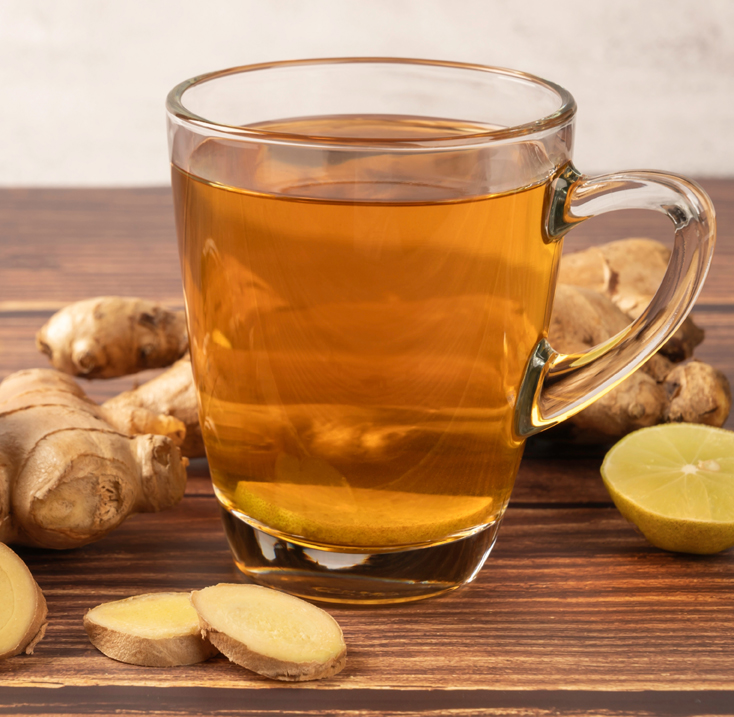At-A-Glance
- Ginger is an aromatic spice most commonly used in Asian cooking. It also has proven medicinal uses, including treating bloating, gas, nausea, indigestion, arthritis, and acid reflux.
- Ginger was one of the first spices to be cultivated and distributed globally, starting about 5,000 years ago in Southeast Asia, where it grows natively.
- Today, 4.3 billion pounds of ginger are grown annually. Different cultures have used it differently for culinary, medicinal, and spiritual purposes. The latter? … ensuring the safety of boats.
Join Facebook Live with Dr. Koufman, Noon EDST 1st Wednesday of the Month. If You Miss It Live, See It On YouTube After.
What Is Ginger?
Ginger root has been a very popular spice for 5,000 years. It starts with farming the rhizome, the plant’s underground stem, which stores carbohydrates and protein used during the growing season.
Ginger is native to Malaysia and Indonesia, and it was one of the first spices to be shipped worldwide, with China, Japan, and India being the first big users. Today, 4.3 billion pounds of ginger are grown, manufactured, and distributed yearly. It is sold fresh, dried, pickled, preserved, crystallized, candied, ground, and powdered.
Ginger is a delicious and aromatic spice; different cultures have used it differently. In antiquity, it was used as a treatment for almost everything. Ginger remains essential in Asian cuisine, especially Indian, Thai, and Chinese … and it does have some medicinal properties.
And what about us? Ginger is everywhere in American culture, as a spice in cooking, ginger ale, ginger tea, ginger candy, ginger sticks, ginger supplement capsules, and last but not least, gingerbread.
What Are the Health Benefits of Ginger?
Ginger is rich in phenolic compounds, terpenes, polysaccharides, lipids, and organic acids. Most of its health benefits are related to phenolic compounds, gingerols, and shogaols. Ginger has been studied; a review article on ginger bioactives reported that ginger has antinausea, antiemetic, antioxidant, anti-inflammatory, antimicrobial, anticancer, neuroprotective, and cardiovascular properties, as well as antiobesity and antidiabetic activity.
There are proven applications: Ginger helps prevent nausea and vomiting during pregnancy and chemotherapy, and it also helps prevent travel (motion) sickness. Scientific studies have evaluated other herbal and natural remedies — probiotics, psyllium, prickly pear extract, melatonin, and B-complex vitamins — and none show the benefits of ginger.
As an anti-inflammatory, ginger has been shown to decrease knee pain in people with osteoarthritis, “wear-and-tear” arthritis. It is not exactly clear how ginger helps reflux; however, it appears by several mechanisms: It may act as an acid-suppressive; it may reduce tissue inflammation and it may enhance gastric motility.
In my experience as a clinician, listening to the experience of patients, ginger tea in the evening can ease reflux symptoms, hunger, and settle the stomach. That said, I believe that like banana, ginger can be a idiosyncratic reflux trigger food for a small number of people, perhaps 5%. But that means that I still recommend it for 95% of refluxers.
In summary, I recommend ginger to treat and prevent reflux, bloating, gas, nausea, indigestion, bowel problems, arthritis, and respiratory infections. I specifically recommend ginger tea (without sugar or honey, but artificial sweetener is okay) if your stomach is growling or you are hungry after dinner, i.e., after your last meal … my recipe for ginger tea is below.
Does Consuming Ginger Have Potential Side Effects?
Ginger is safe for most people to eat in normal amounts, such as in food recipes; however, higher doses, such as those in supplements, can have side effects, including abdominal discomfort, diarrhea, mouth irritation, and heartburn. Meanwhile, studies of the use of ginger during pregnancy suggest it is safe and not associated with birth abnormalities.
Inconclusive research has suggested that people who are on anticoagulant therapy might avoid ginger as it could augment the effects of their blood thinners. Also, and still very inconclusive, is the possibility that ginger can affect insulin and lower blood sugar levels. That said, until more is known, people with diabetes can enjoy ginger in food but avoid ginger supplements.
How To Make Ginger Tea
Buy a piece of fresh ginger root
Trim off the knots and dry ends
Cut off or peel the skin
Cut 5-8 thin crosswise slices
Put the slices in a cup or mug
Pour in boiling water and cover
Let the tea steep covered for 10 minutes
Enjoy!
Comment: To help with a growling stomach or hunger between the time you finish dinner and bed, have ginger (or chamomile) tea. If you want to sweeten the tea, I recommend that you use an artificial sweetener, not sugar or honey … you don’t want to start up a quiet stomach.
Subscribe to this blog (sign up below) to stay current; if you would like to schedule a virtual consultation with me, you can Book It Online.










